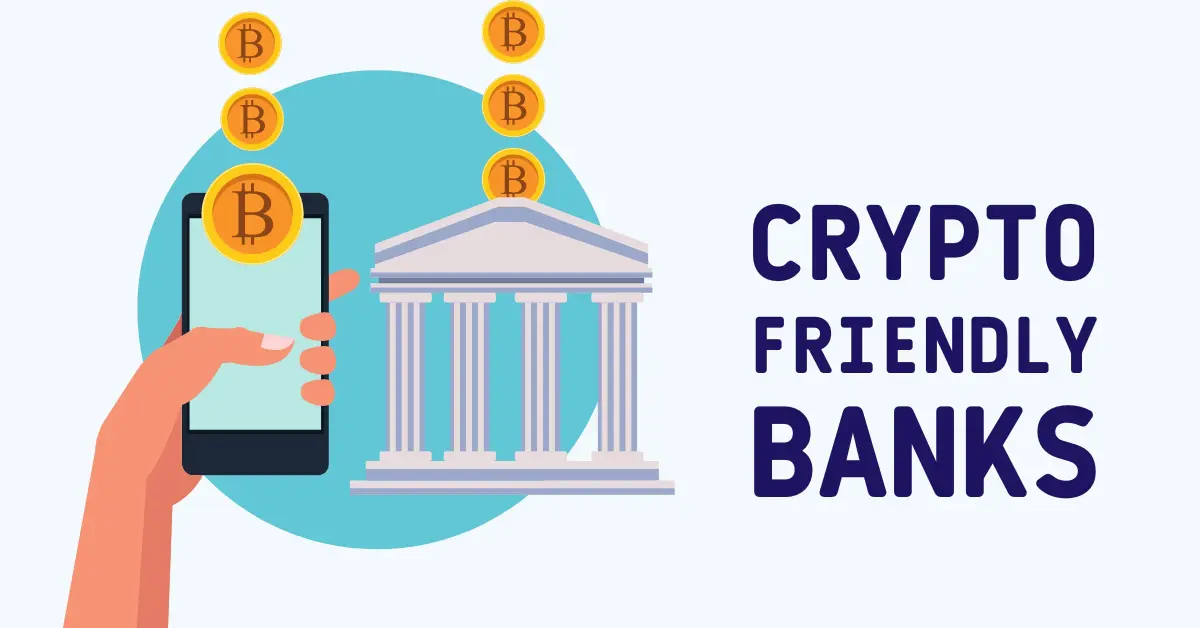Cryptocurrencies have transcended the realm of trends, embedding themselves as a pivotal component of the global financial landscape, engaging over 420 million users worldwide. With the USA leading the charge, countries like India and Vietnam are swiftly catching up, anticipating exponential growth in crypto adoption.
To cater to the escalating demand for optimized services, crypto banks and crypto-friendly banks have emerged. Distinguishing between the two, crypto banks are decentralized platforms tailored for digital assets, while crypto-friendly banks are traditional, centralized banks extending services to cryptocurrencies.
Distinction Between Crypto Banks and Crypto-Friendly Banks:
Crypto banks, exemplified by Scallop, operate on decentralized blockchain technology, offering crypto-centric services. In contrast, crypto-friendly banks, like JP Morgan Chase, are traditional banks facilitating crypto transactions through digital apps or banking cards.
Top 10 Crypto-Friendly Banks in 2024:
1. JP Morgan Chase
A global financial giant, JP Morgan Chase, has forayed into the crypto space with JPM Coin, facilitating cross-border payments among institutional clients. The bank prioritizes compliance, risk management, and offers institutional-grade research on crypto markets.
2. Revolut
UK-based Revolut is a fintech project supporting over 30 cryptocurrencies, streamlining processes for buying, selling, and holding digital assets. With a user-friendly platform, Revolut offers flexible purchase options and bundled collections of tokens in DeFi and blockchain.
3. Juno
Tailored for businesses and individuals in the crypto and blockchain space, Juno offers specialized crypto accounts, crypto-backed loans, trading, and savings. The platform integrates advanced technologies such as AI and Machine Learning for personalized insights.
4. Wirex
While not a crypto bank, Wirex provides payment cards in partnership with Mastercard, supporting both traditional and cryptocurrencies. With services like Web3-based free accounts and passive income through staking, Wirex stands as a favorable crypto-friendly bank.
5. Monzo
A digital banking pioneer, Monzo embraces decentralized finance, allowing customers to use their bank accounts on external crypto exchanges. Monzo cards are compatible with the majority of crypto exchanges, enabling seamless fund management.
6. Ally Bank
As a customer-centric online bank, Ally Bank doesn’t offer direct crypto services but permits customers to use their accounts on external crypto exchanges. With transparent fee structures and competitive interest rates, Ally Bank is FDIC-insured and offers various investment options, including crypto funds.
7. Cash App
Developed by Square, Cash App offers a full-service banking experience, enabling users to invest in traditional stocks and cryptocurrencies. Users can deposit and withdraw Bitcoin directly to and from personal wallets.
8. BankProv
Also known as Provident Bank, BankProv specializes in crypto-friendly banking services, offering accounts for cryptocurrency businesses and facilitating asset management for crypto traders. The bank ensures compliance with regulations and anti-money laundering requirements.
9. Mercury
Tailoring its services to Web3 companies, Mercury allows users to buy cryptocurrencies using the account. With features like FDIC insurance coverage and cashback bonuses, Mercury stands out as a valuable business banking solution.
10. Quonic
A US-based community bank, Quonic offers interest-bearing accounts for crypto assets, allowing users to earn passive income on digital assets. Known for its crypto-friendly policies, Quonic also provides Bitcoin rewards and cashback on purchases.
Final Thoughts
Selecting the right crypto-friendly bank involves considering factors like the ability to hold crypto and fiat currencies, crypto cards, integration with crypto exchanges, low transaction fees, and positive user reviews. Reputed institutions such as JP Morgan Chase, Scallop, and Revolut are trustworthy options in the evolving crypto landscape.


